The soldiers who patrol the Hashemite Kingdom of Jordan’s northeast border with Syria are hardened sons of the desert. The frontier they secure is harsh and barren. Temperatures in summer can break 115 degrees in the shade—when any shade can be found. Winters are brutally cold, with cutting winds and sudden blizzards. Sandstorms can be blinding. To the Bedouin soldiers garrisoned along the line, it’s their home. They know how to ration water under an unforgiving sun and how to field-brew strong coffee during bone-chilling nights. Some have patrolled the area for years, like their fathers before them. They possess inherited tracking skills that enable them to identify the faintest signs of an intruder crossing the no man’s land that separates the two nations, and follow with rifles at the ready. This is bandit country, after all.
On Jan. 27, 2022, a Jordanian desert patrol spotted an armada of Toyota Land Cruisers from Syria using the near-zero visibility of a snowstorm as cover to rush the border. There are no fences or tripwires here, only imposing sand berms that stretch as far as the eye can see. But a Land Cruiser, the new camel of the desert, can negotiate the slickest sand and the highest obstacles. It’s the vehicle of choice for Syrian drug smugglers.
The armada was guarded by heavily armed men wearing military fatigues. And while Jordanian soldiers fired warning shots, the Toyotas pressed forward. A pitched firefight commenced. The ferocity of the battle was unlike any engagement that had ever happened along this frontier. When the shooting stopped, Jordanian commanders tallied 27 dead intruders in the cold sand. None carried identification.
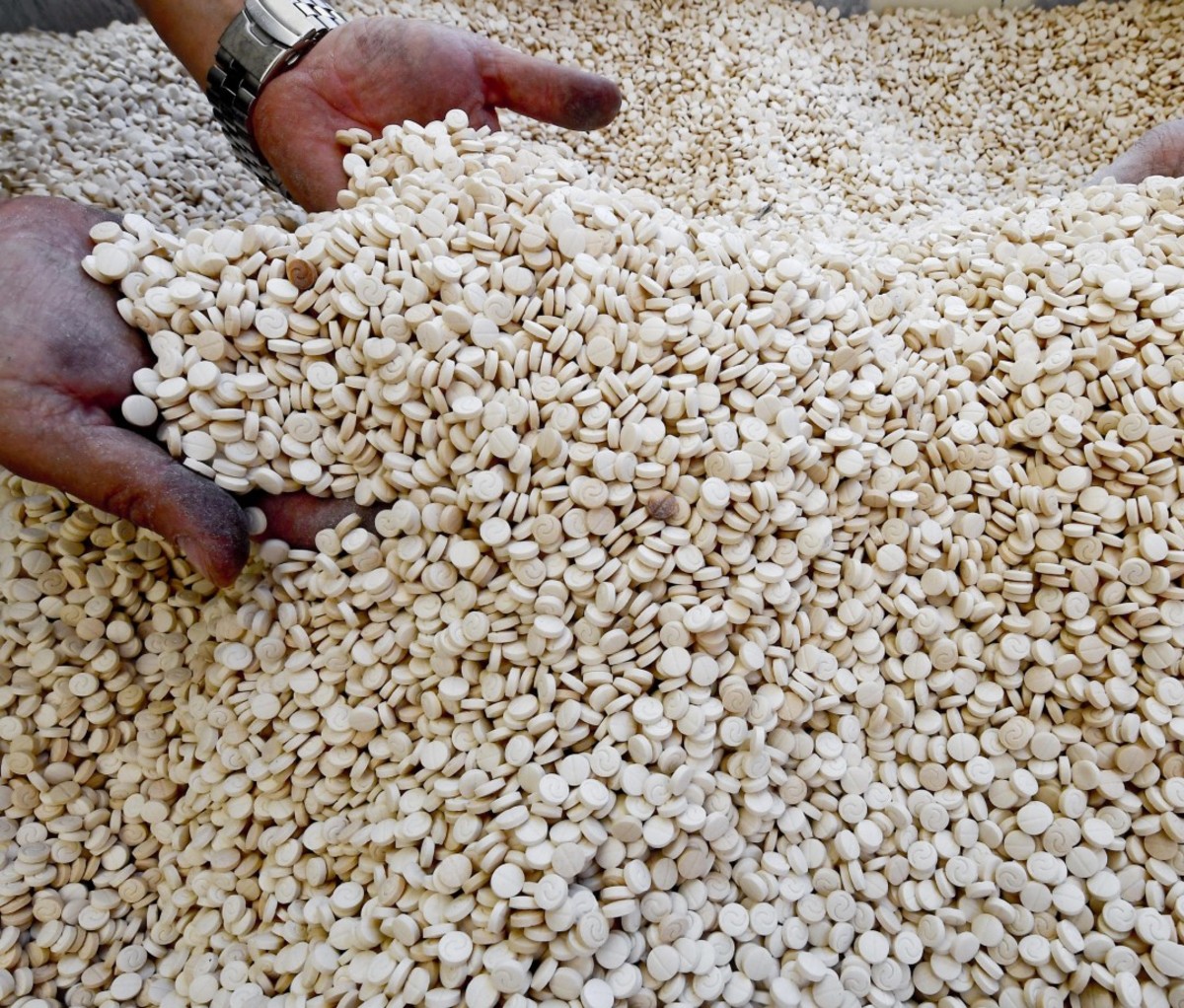
Less ambiguous was the cargo. The bullet-riddled Toyotas were laden with white canvas sacks packed with hundreds of kilos of captagon pills, a powerful and highly addictive amphetamine, ultimately destined for Saudi Arabia and markets in the Persian Gulf.
To the Jordanian commander, it was evident that the Syrians had special forces training. “These were paramilitaries, professionals,” he says, “not run-of-the-mill criminals.”
The battle was the topic of the day at the sprawling U.S. embassy in Amman, Jordan, where security agents from the Department of State, officers from the CIA station, and attachés from the U.S. armed forces and special-operations community monitor the impact of developments in the region.
Background briefings detailed the facts—that civil war-torn Syria is now the Mexico of the Middle East, a narco-empire run by cartels responsible for spreading violence and misery thousands of miles away. Captagon has become the country’s largest cash export, spawning a legion of addicts from the Persian Gulf to Mediterranean shores. Bankrolled by Iran and enforced by Hezbollah terrorist proxies, Syria’s captagon trade is the latest scourge to threaten America’s allies and vital strategic interests in the region. The United States has now joined the fight to stop it, fearing that the drug will spread to this country, especially considering that both Syria and Hezbollah have established links to cartels in Central America.
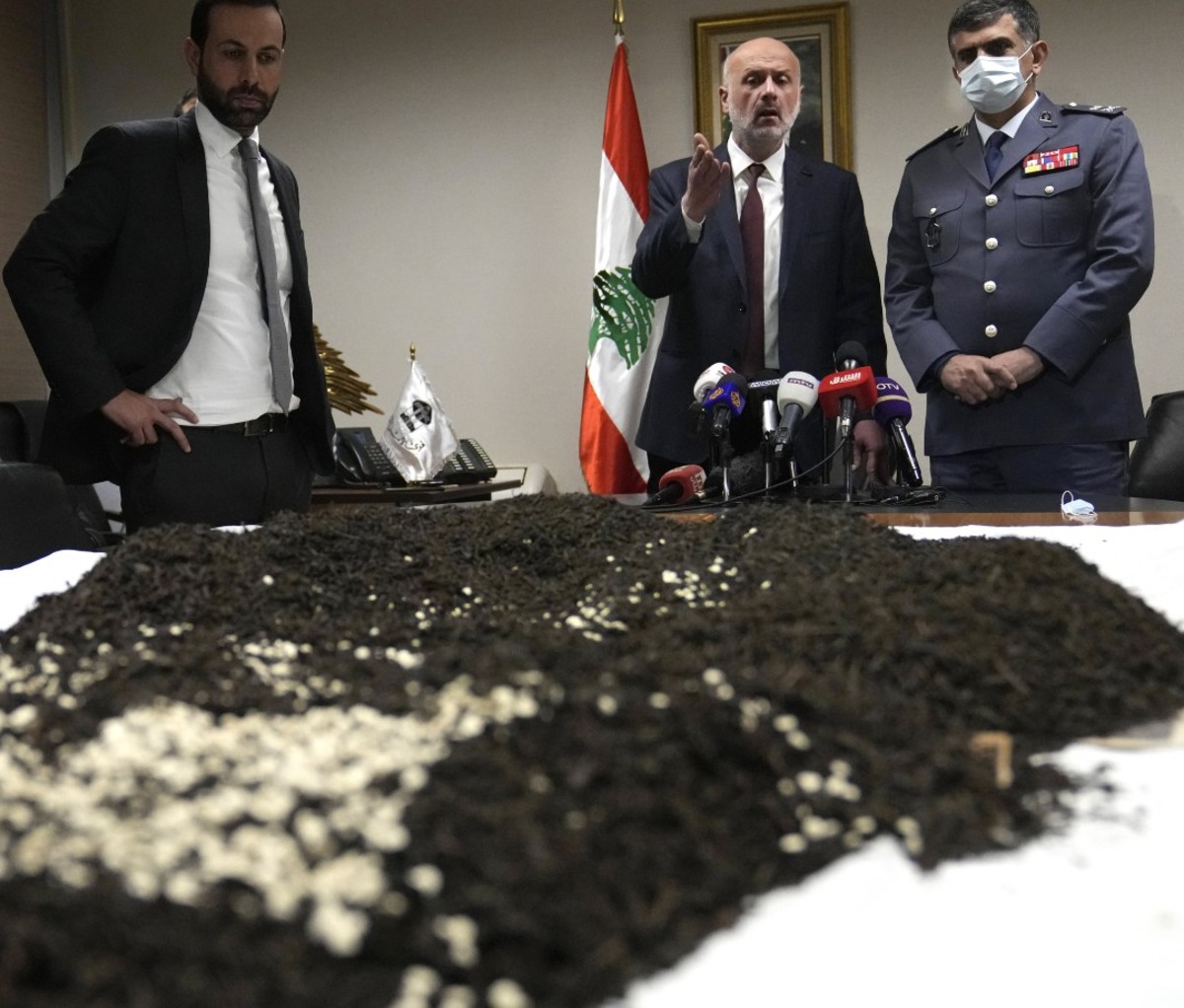
The consensus at the embassy was that the showdown in the desert was a turning point, an escalation from drug smuggling to full-blown conflict that could push the Middle East closer to yet another precipice. A line in the sand had to be drawn.
Produced from a compound of fenethylline hydrochloride, captagon made its debut in Germany in 1961 as a legal medication prescribed to treat ailments such as narcolepsy and depression. Soon, however, the international medical community realized that it’s so addictive that any benefit is outweighed by the collateral damage it causes—sleep deprivation, depression, and blood vessel toxicity. It was reclassified as a controlled substance; the DEA lists it as a Schedule One narcotic, alongside heroin and fentanyl.
Described by some as the poor man’s cocaine, captagon fosters a feeling of superhuman strength and endurance in those who ingest it. The Syrian government may not have invented captagon, but it weaponized the pills by including them as basic rations for its soldiers battling rebel factions in the country’s brutal, decade-old civil war. The drug’s effects enabled government troops to ignore pain and hunger and fight on even after being seriously wounded. Soon, combatants on all sides of the conflict carried captagon in their ammo pouches.
“Captagon makes you feel that nothing can stop you,” says a Jordanian law enforcement official in Amman. “It makes you feel that you can conquer the world. When courage and skill are lacking, captagon can help turn a nobody into a Rambo.”
It also can turn a pariah state into a drug superpower, as Syrian dictator-president Bashar Al-Assad has gone all-in on captagon as a means to replace funds lost to sanctions and the drastic curtailment of legitimate exports. There exists no buffer between the regime and the captagon trade. The president’s younger brother, Maher al-Assad, commander of the Fourth Armored Division and de facto commander of the regime’s Republican Guard, is also in charge of production and distribution. (Maher’s involvement in war crimes and the drug trade has earned him a spot on U.S. and European sanctions list.)
The chemicals that produce captagon, not hard to obtain, are often delivered by regime allies in Iran. The machines needed to press the pills are fairly low-tech and also readily available. Sophisticated labs aren’t required; Syria has plenty of idle factories easily converted to drug production. Families loyal to the regime that own businesses in food industries or packaging have been recruited to facilitate the booming trade. And in case any of them fall out of line, it all transpires under the purview of the Syrian Military Intelligence Directorate, the dreaded Shu’bat al-Mukhabara al-‘Askariyya, a sinister force known for brutal retaliation against regime enemies.
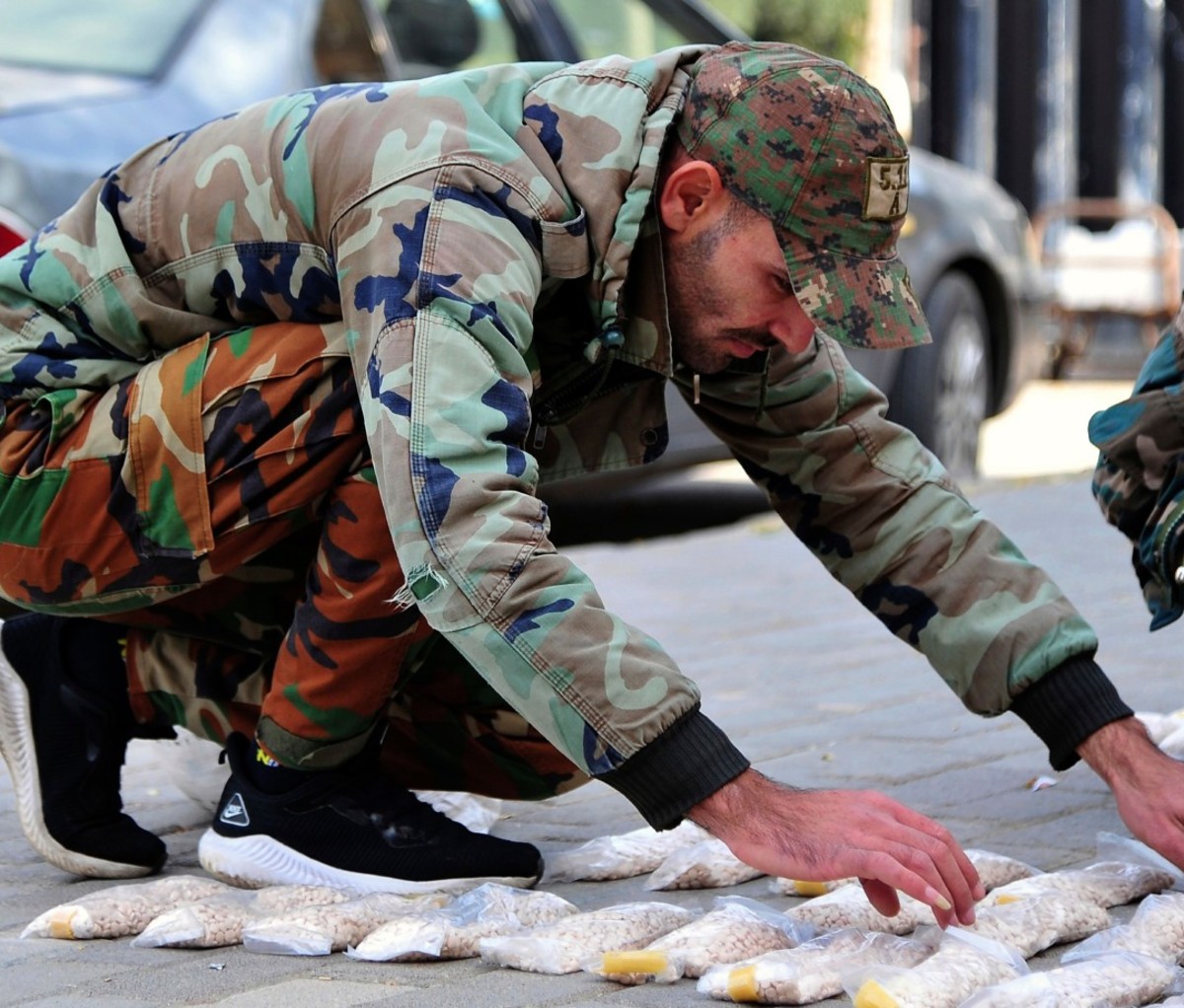
The larger challenge is to deliver the product to markets both near and far-flung. Initially, Syrian cartels attempted to avoid law enforcement by shipping captagon via freighters and cargo flights from ports in Lebanon, courtesy of Hezbollah. In one case, 93 million pills bound on a circuitous journey to the United Arab Emirates were intercepted in Malaysia. Record seizures have been logged by authorities across the Mediterranean.
Even as these busts occurred, the captagon trade became a useful tool for Iran and Hezbollah, Syria’s Shiite allies, to undermine their Sunni foes in a novel, insidious way. Captagon is the right drug at the right time for the young and affluent of Saudi Arabia and other Gulf states. Men want to enhance their machismo, or stay up for days on end studying for exams. Young wives and women seeking to be wed seek captagon as a weight-loss miracle.
The drug’s popularity throughout the region causes a massive flow of money back to Syria.
“The profits from the captagon trade are beyond comprehension,” a drug investigator explains. “It costs less than three cents to manufacture one top-strength captagon pill, and that same pill sells for $10 to $15 in Riyadh or Dubai.”
Jordanian authorities have seized close to 50 million captagon pills with a street value of nearly $1 billion. Still, they realize they’re stopping only a fraction of what is smuggled. According to one western intelligence official’s conservative estimate, captagon “brings in more than $30 billion a year to the men who ensure that the Assad crime family remains in power.”
Ultimately, the most straightforward and cost-effective way to move massive quantities of narcotics from Syria to Saudi Arabia and the Gulf is overland through Jordan. After absorbing more than a million Syrian refugees and playing a critical role in the multi-national campaign to stop the spread of ISIS, Jordan finds itself caught in the middle of yet another conflict. As one Jordanian security official wryly comments, “Wars don’t end in this part of the world, they simply morph into something different and more dangerous.”
Jordan’s security service, the General Intelligence Department (GID), has become the kingdom’s first line of defense to stem the flow of captagon. The GID is considered one of the most capable espionage agencies in the region, excelling in the use of agents and assets to infiltrate drug networks. The work is extremely dangerous. Syrian military intelligence and Hezbollah have made examples of individuals suspected of working with foreign law enforcement. People have disappeared.
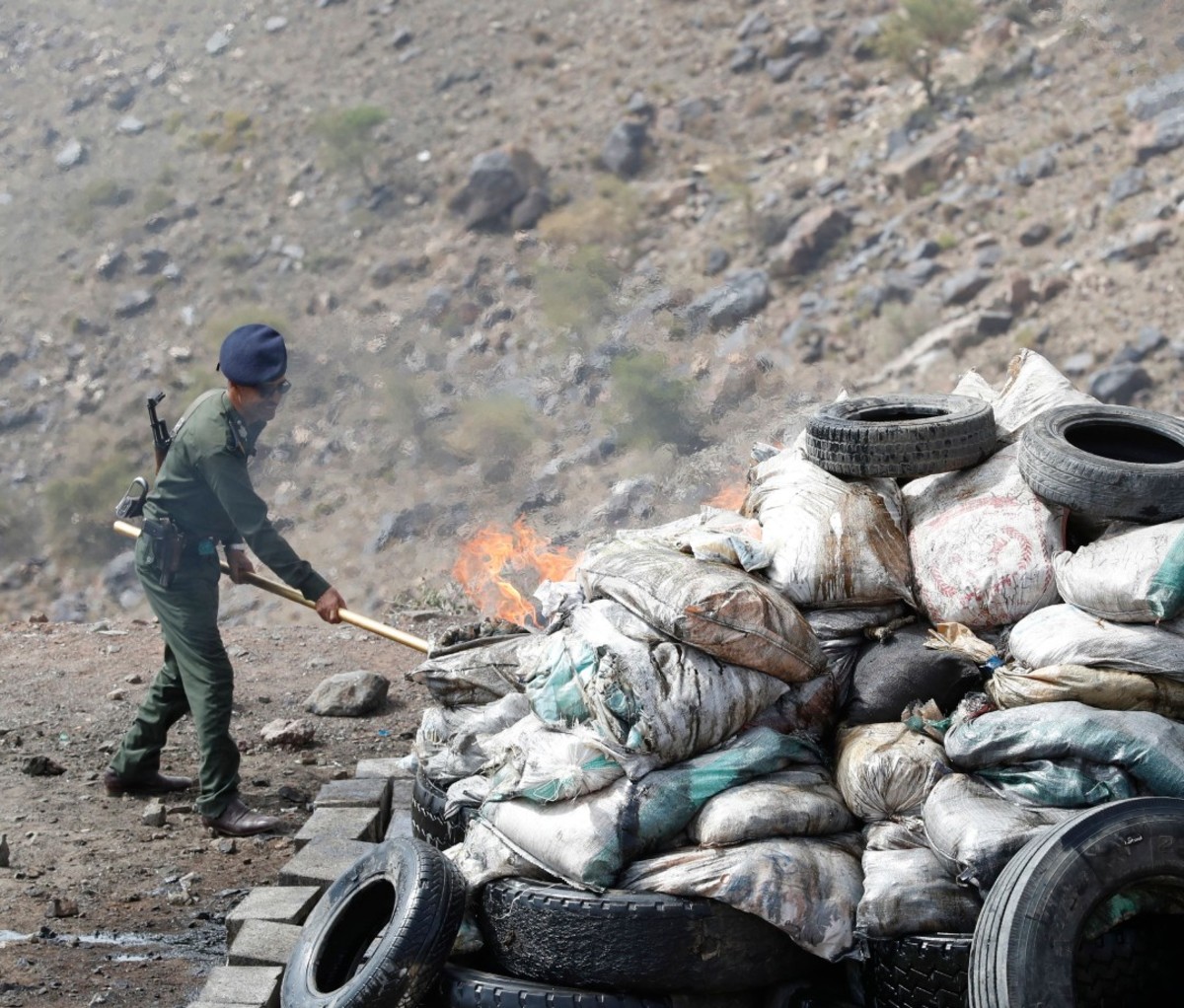
The only official border crossing that connects Jordan and Syria is the northern checkpoint of Jaber. As with the Mexico-U.S. border, smugglers use the checkpoint’s civilian and commercial traffic as cover for captagon pills hidden inside fuel tanks, false bottoms of suitcases, crates of cheese, even fake olives. But most Syrian drugs cross via open country that is much more challenging to monitor.
Jordanian soldiers patrol the 235 miles of border separating the kingdom from Syria. They guard a frontier that consists of impassible mountains to the west of Jaber and endless desert hills to the east toward Iraq. For the most part, the trafficking gangs working either side of the border are members of Bedouin clans, separated by a line on a map drawn at the end of World War I. They speak the same dialect of Arabic and have built networks that are highly compartmentalized and closed to any outsider. Their smuggling routes have been in place for centuries.
That history is not lost to a young Jordanian lieutenant based at a western border outpost opposite the Syrian town of Daraa, as he scans the frontier through a pair of field glasses, in sight of an old railway that Lawrence of Arabia targeted more than a century ago. One of his men, manning an infrared ground radar system and a heavy-caliber machine gun, counts the farmers working across the border, making sure that none reveal themselves as smugglers or Hezbollah operatives aiming to cross. As inhospitable as the terrain is, the area is still a hotbed for captagon smugglers. “It is beyond the realm of reality that someone can climb these hills carrying loads of pills or hashish,” says the lieutenant. Sometimes, the sacks smugglers are given weigh more than 75 pounds. Traffickers feed them captagon to foster the endurance to withstand the elements.
In March, smugglers killed two border guards in a fierce engagement in the desert. Now patrols are augmented by all-terrain vehicles equipped with heavy guns. There are no more warning shots. Orders are now clear—shoot to kill anyone trying to illegally cross the frontier. To counter, smugglers are now using drones to fly drugs across the border. Some are of military stock, manufactured in Iran.
These events in a desert halfway around the planet are monitored by concerned authorities in Washington, D.C. The DEA spreads investigators thinly over 40 countries in the Middle East. Most of the emphasis has always been on places where opium is cultivated and heroin manufactured, but the captagon explosion has shifted priorities. The DEA agent based out of Cyprus used to be responsible for Jordan, but the agency now plans to station an agent full-time in Amman.
The CIA and the GID are tight-lipped when it comes to their level of cooperation, but a partnership forged during the war on terror has been re-energized to combat captagon. CIA officials, no strangers to the region, know that the nexus between terror groups and rogue nations can create quagmires.
“One only has to look at the history of U.S. drug interdiction in Central America and Southeast Asia to know how warning signs ignored in the Beltway result in American boots on the ground overseas, and blood on our streets,” says Fred Burton, former deputy chief of the counterterrorism desk at the U.S. State Department Diplomatic Security Service. “It’s always best to stave off big problems—especially overseas—before they become unfixable.”
Drug wars are won and lost at the decision-making level, but they must be fought on the streets. The man responsible for combatting captagon within Jordan is Colonel Hassan al-Qudah, commander of the Jordanian Public Security Directorate’s Anti-Narcotics Department (AND). Al-Qudah has spent the better part of his 40-something years dismantling previous drug rings. The toll, a lack of sleep and a diet of coffee and cigarettes, has earned him an appearance of stoic exhaustion, with dark circles stenciled under his eyes. Weariness is a universal badge that identifies all veteran cops.

At any time of day, the heavily fortified hilltop AND headquarters buzzes with activity. Investigators chase leads and examine financial records. Plainclothes officers review blurry images of suspects who have been photographed at long distances by surveillance teams. Some are brought in for questioning. The sounds of office doors opening and closing, and men barking into radios, creates a cadence known to police stations anywhere in the world.
Al-Qudah leads a force of more than 1,000 officers. In recent years, his men have seized tons of captagon and meth, and confiscated arsenals of weapons. The war that he and his men are fighting is fraught with risk. A wall in his office is dedicated to AND members killed in the line of duty.
At the start of the summer, undercover officers noted chatter concerning a large shipment of drugs that were to cross the border from Syria into Jordan. In August, they identified a large captagon shipment passing through Amman on the way to Saudi Arabia. Agents were able to put faces to names and embarked on large-scale surveillance during which the comings and goings of all the suspects were monitored.
The plan was to intercept the smugglers’ vehicle on a road east of the Jordanian capital—taking the traffickers down on a secluded street was deemed safer than attempting to breach a fortified building. The AND tactical team was summoned for backup. The arrest was not supposed to end in gunfire—armored cars and overwhelming firepower are typically a strong deterrent to resistance.
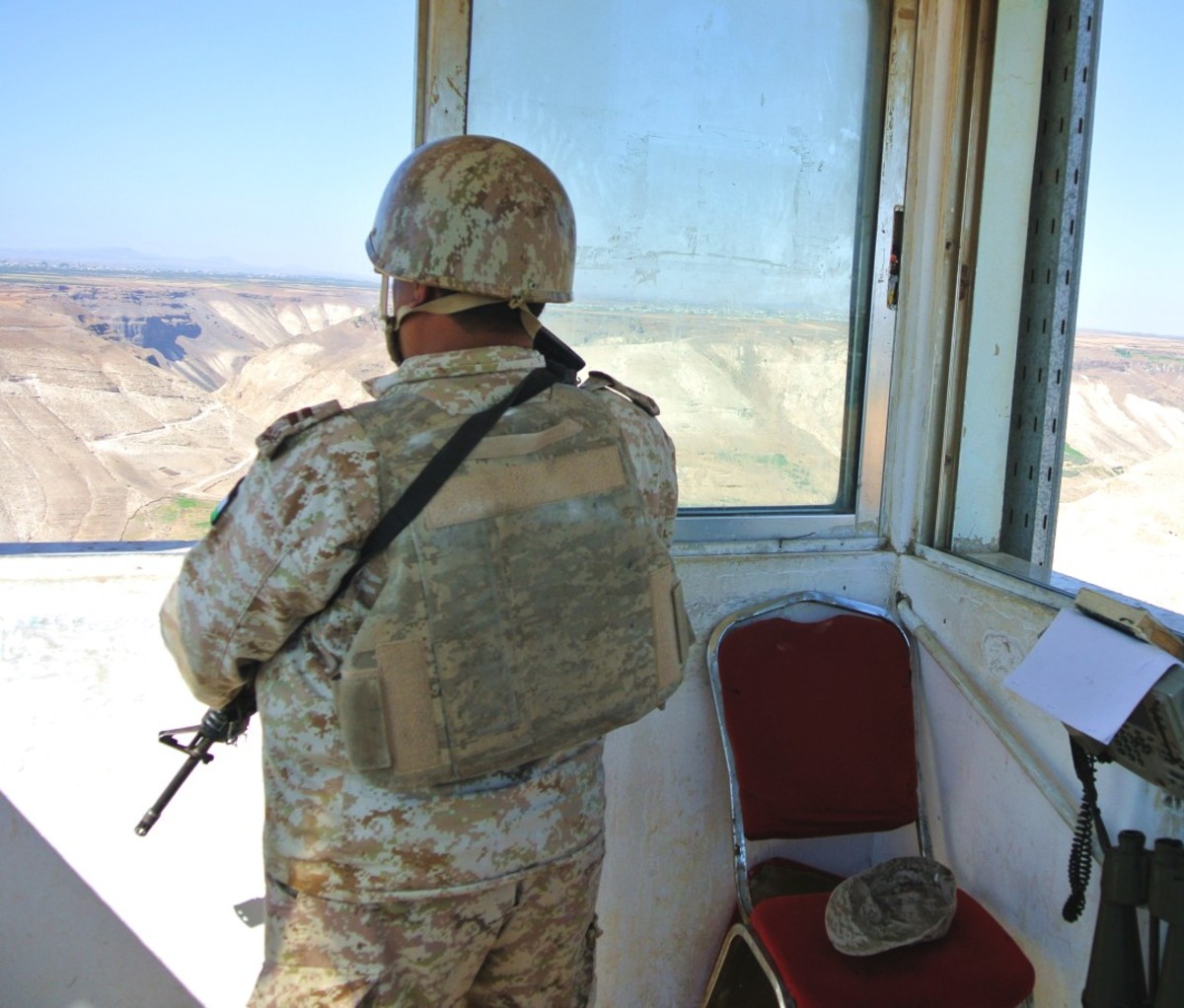
But times have changed. When agents swooped in for the arrest, the two smugglers inside the vehicle started shooting. The firefight was brief, the suspects critically wounded. Amid the blood, shattered glass and spent shell casings, the arrest team found hundreds of thousands of dollars of captagon, crystal meth and hashish, along with a fortune of Saudi and Gulf state currencies—genuine and counterfeit. The crime scene looked like a war zone, and is viewed by many as a harbinger of things to come.
Meanwhile, the threat to Jordan and America’s other allies in the Middle East has finally caught the attention of the U.S. Congress. Representative French Hill, a Republican from Arkansas, has introduced a bill that identifies Syria as a transnational security threat and calls upon the Biden administration to use the full power of the U.S. government to disrupt and destroy the Assad regime’s trafficking empire. H.R 6265, dubbed the Countering Assad Proliferation Trafficking and Garnering of Narcotics (CAPTAGON) Act, passed the House in September, 2022.
As the bill awaits ratification by the U.S. Senate, the battle rages on in Jordan. On a warm morning not long after the fatal raid, a veteran AND commander knocks on Al-Qudah’s door to hand him the tactical plan for yet another operation. His agents were in action the night before, but the intelligence is good and the smugglers won’t wait.
The officer asks his boss if he’ll go home for a bit of rest first. Al-Qudah lights another cigarette before replying, “Who says any of us ever gets to sleep?”
from Men's Journal https://ift.tt/po20PSZ





No comments:
Post a Comment